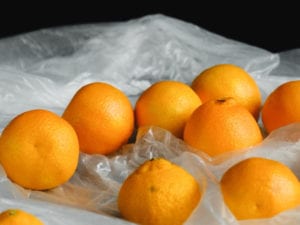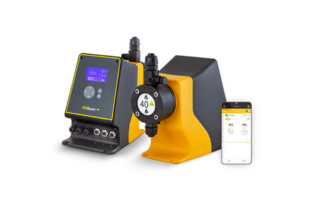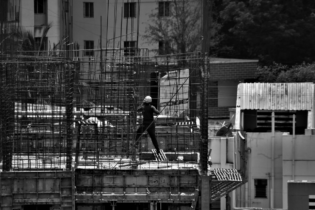With the new Biden/Harris administration in place in the USA, we can expect renewed critical momentum behind global positive climate change policy and actions.
While climate change policies generally focus on the critical areas of energy, agriculture and natural resources, increasing attention is also being paid to waste (generally plastic recycling, minimisation, and alternatives).Within the waste sector the negative impact of organic waste’s methane and nitrous oxide emissions is being concidered. These two greenhouse gases are significantly more impactful than carbon dioxide; methane on a weight basis has 21 times the global warming potential (GWP) of carbon dioxide while nitrous oxide is 300 times more potent than CO2.
According to the UK’s Dept. for Environment, Food and Rural Affairs (DEFRA), the CO2e emissions from untreated — dumped — food waste is 627kg /tonne — more than half its weight! Moreover, food waste rots, smells, attracts rats and other vermin while also polluting scarce above and below ground water sources.
While reducing waste at point of harvest, distribution and consumption is critical, recycling food waste and diverting it from landfill should form a key strategic pillar for any individual or organisation looking to reduce their environmental footprint.
Ten years ago Karen Heron started working with composting earthworms. She quickly realised that these Darwin prized soil engineers were not quite up to the task of recycling all of the food waste coming out of the family’s kitchen.
While composting earthworms (eisenia foetida) are extremely good at processing fresh food waste but don’t do well with cooked food, proteins (meat), acidic (lemons) and, unlike French gourmet chef’s or even Jan Braai, also don’t handle garlic very well.
So she looked for another solution and came across ‘bokashi’. “Bokashi” means “fermented organic matter” in Japanese and is a microbe based technology which enables all food waste to be, firstly, treated and then, secondly, composted or dug into soil.
This provided the foundation for starting Earth Probiotic Recycling Solutions. Today Earth Probiotic has a national footprint and provides on-site food waste solutions for both residential homes and commercial enterprises.
“We realised pretty early on that ‘food waste’ wasn’t just a household issue. If we wanted to maximise the climate positive impact of our business we needed to target the commercial sector as well.” says Gavin Heron, Earth Probiotic’s co-founder.
Using their own locally developed solutions including automated composting machines (manufacturing is outsourced to Directech in Kya Sands, Johannesburg), Earth Probiotic’s food waste recycling technologies have been implemented across Southern Africa including Botswana, Mozambique, the Seychelles, South Africa and Zambia.
“Sourcing our products locally was initially about minimising our logistic foot print, but has become a key source of strength for our business: our pricing is relatively stable as we deal in Rand and our supply chain wasn’t overly impacted upon by the disruption of global supply chains due to the coronavirus pandemic.” comments Karen Heron, CEO, “and we are also proud to be supporting local manufacturers and technology innovators”.
Earth Probiotic estimates that since startup in 2010 they have diverted just under 5,000 tonnes of food waste from landfill thus saving 3,000,000kg (three million kilograms) of CO2e emissions (or 7,500 m3 of landfill airspace; a critical and increasingly scarce municipal resource).
Currently Earth Probiotic’s solutions are directly responsible for diverting 100 tonnes of food waste every month.
“When we first started the business we were really focussed on simply delivering our solutions, training staff and, where required, assisting with composting programmes. Then, a few years ago, we paused and took a wider view of how much waste our customers were actually diverting and went ‘wow, that’s millions!’.” comments Gavin, “we realised that our impact really comes from aggregating clients’ recycling volumes”.
Earth Probiotic offers scalable solutions to the market: household system where the average customer will be composting 30-40kg of food waste per month; small office canteens and staff kitchens which compost 300-800kg per month; large office and retail complexes generating over 2,000kg per month; and shopping malls where, at one site, the company’s industrial composting machine processed 80,000kg food waste in one month (pre-Covid).
During Covid lockdown Earth Probiotic’s noticed that, while their commercial business took a backwards step, consumer sales actually increased. While the company attributes this to the three “b’s” (baking, brewing and bokashi), the upturn in consumer sales in all likelihood heralds both increased personal environmental responsibility but also, and as important, a desire to be more personally resilient and independent from centralised, increasingly stretched, municipal services.
For further information please visit www.earthprobiotic.com or to interview either Gavin or Karen Heron please contact Tracy – 082 853 1024 or email tracy@outthereglobal.com
Press Release by Earth Probiotic Recycling Solution







